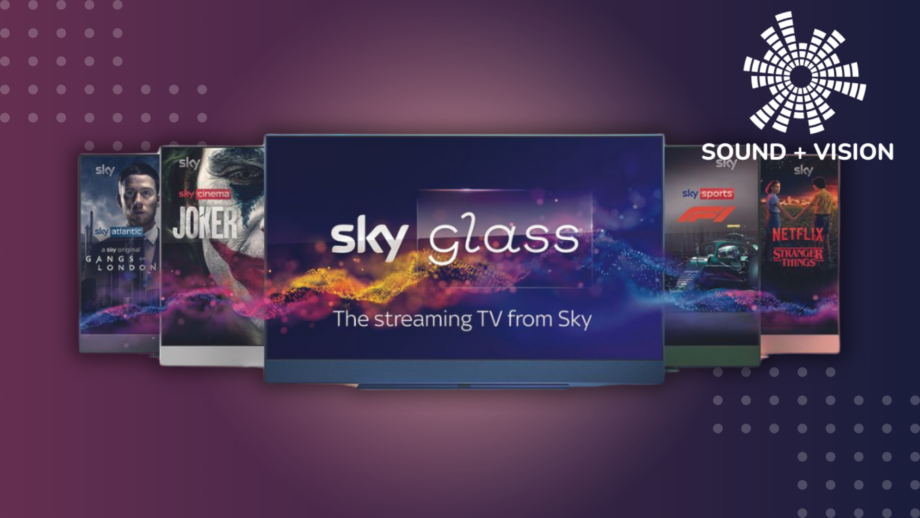Sound and Vision: More TV brands should follow Sky Glass payment model

OPINION: From the end of February and throughout March is usually when we first get info on the new 2024 TVs. It’s also the time of the year where you can find cracking deals on 2023 TVs as retailers make space for new models.
It is as it ever was – year in, year out, the same carousel of TV turnover.
There are a few aspects of the TV industry that I don’t think make it easy for the customer to follow. The proliferation of confusing model names is such an area, and how people pay for TVs is another that could be simplified.
Let’s travel back, Lazarus Project-style, to 2021 when Sky Glass appeared. It’s a TV that came with many promises and hype – it didn’t necessarily hit the mark but its concept of making the TV buying process simpler is one that stuck. Sky Glass’ adoption of a contract similar in vein to smartphones was its smartest idea.

Breaking down the cost of a TV into smaller bites made the initial hit less scary. Which would you prefer? £1000 out of your pocket now, or £1000 across two years?
Each year there is the same churn. TVs launch at high prices, then gradually come down as the year goes on, and though I don’t have access to data as to when customers purchase a TV, I don’t think it’s hard to surmise that most spend money when there’s a sale or the price has depreciated significantly.
But what would it look like if you could pay for a TV monthly? Would more customers be open to purchase a new TV earlier in its lifecycle?
From the TV manufacturer’s perspective, a monthly contract locks the customer in, but in the age of smart devices, we’re no longer talking about just a TV, we’re talking about an ecosystem. Bundle in Netflix, Paramount+, or Apple TV+ while you’re at it too.
As I’ve mentioned before, TV operating systems are, and will continue to have, a big focus in the next few years, and having a viewer enmeshed in an ecosystem could develop brand loyalty – if they have a good experience, of course. Perhaps if they have a good experience with one product, they’ll consider another from the same brand.
And once the contract is up, they can likely switch it for another size or perhaps stick with the TV now that the costs are covered in a similar vein to Sky Glass. If they have a good experience, I’d imagine it’s unlikely that they’d want to switch back to the ‘traditional’ buying experience again.

It puts the focus on service, less on a TV’s A/V credentials, which Sky Glass has shown works. It’s the direction TVs are going into with the focus on operating systems, but it’s a surprise that other than Sky, no one has made it central to their messaging.
Samsung does offer its TVs on a monthly contract directly through its website, as does Sony (via Klarna payments) but looking at the big brands, it’s rare, and the likelihood is that most shop through online retailers rather than direct.
Considering the current cost-of-living crisis, it would be more helpful to have the option to reduce the initial hit. Perhaps even from an environmental perspective, launching fewer TV models each year equals less waste, as some TV models could launch in cycles of two or three years.
Smartphones are offered on a contract basis, and you can similarly purchase a car – we’ve become used to monthly payments across a wide range of products and services. Amazon offers the option of buying a product and breaking it down into payments across many electrical devices – it seems a smart move, but the impression I get from TV brands is that it’s not something they’re fully onboard with.
My solution? Well, this payment option wouldn’t be for the premium TV models or necessarily the affordable budget options, but for mid-range TVs that a customer may aspire to have but can’t stretch their budget to afford.
Perhaps I’ve missed something obvious, but I don’t see many downsides. Making things easier rather than confounding is the field TV brands should be ploughing. It seems they’re missing a trick by not making this an important part of their messaging going forward.








